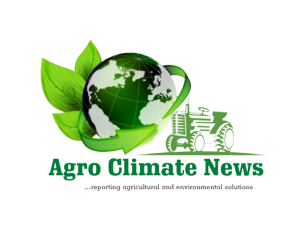As the world prepares for the COP30 climate talks in Belem, the Global Alliance for Incinerator Alternatives (GAIA) has called for stronger financial support for community-based zero waste systems, describing them as a fast, low-cost solution to reduce methane emissions and create sustainable jobs.
In a new policy brief released ahead of the talks, GAIA outlined a toolkit for governments and financial institutions to channel climate funds toward waste reduction initiatives, which it says are essential public services rather than profit-driven ventures.
Read Also: Despite Methane Pledges, Governments Submit Weak Waste Emission Plans – GAIA
Read Also: Climate change: Our people suffering for emissions they didn’t create – Environment Minister
The organization urged negotiators and donors to prioritize “real solutions” and avoid funding waste-to-energy (WTE) incineration, refuse-derived fuel, or co-firing projects, arguing that such measures harm the environment, displace workers, and drain public resources needed for genuine reforms.
“At the ‘Implementation COP’, leaders must back cost-effective climate solutions that make people’s lives better and leave no one behind,” said Yobel Putra, GAIA’s Global Climate Policy Officer. “Investing in community-based zero waste solutions does just that. Our work shows there are shovel-ready projects that need the right financial framework to scale up and deliver.”
GAIA recommends that climate finance prioritize grants over loans, especially for projects that deliver social and environmental benefits—such as closing dumpsites, cleaning up pollution, and retraining waste workers. For initiatives that can generate revenue, the organization suggests concessional loans and financial mechanisms that avoid unsustainable debt for developing nations.
The group also advocates for a “polluter pays” approach, including fees on plastic pollution, taxes on waste dumping and burning, and reform of harmful subsidies. It further urges governments to reinvest savings from reduced landfill use and transport costs into sustaining local waste operations and paying workers.
According to GAIA, the waste sector contributes nearly 20 percent of global methane emissions, yet received less than 1.5 percent of climate finance in 2023—with 99 percent of that going to waste-to-energy projects. Only 1 percent was directed to organic waste management.
GAIA’s research shows that if scaled globally, zero waste systems—comprising prevention, reuse, recycling, and composting—could cut solid waste methane emissions by up to 95 percent.
Communities in Accra, Buenos Aires, and Quezon City are already implementing successful models that integrate informal waste pickers into formal employment systems while improving urban sanitation and reducing pollution.
“Community-based zero waste systems not only reduce waste disposal and emissions, but they boost jobs, environmental health, food sovereignty, civic engagement, and local economies,” said Cecilia Allen, Director of GAIA’s Global Zero Waste Cities Program. “With public policy support, these benefits could go further.”
GAIA’s brief highlights the urgent need for global financiers to back these grassroots initiatives as part of COP30’s mission to deliver practical, equitable climate action.



